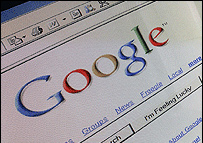
The conclusion is based on research which showed that Google could provide a reasonable degree of accuracy, by correctly diagnosing 15 out of 26 cases that were published in the New England Journal of Medicine in 2005.
“Useful information on even the rarest medical syndromes can now be found and digested within a matter of minutes,” said the article by Hangwi Tang and Jennifer Hwee Kwoon Ng from the Department of Rheumatology at the Princess Alexandra Hospital in Queensland.
“Our study suggests that, in difficult diagnostic cases, it is often useful to Google for a diagnosis. Search engines such as Google are becoming the latest tools in clinical medicine, and doctors in training need to become proficient in their use.”
Tang and Ng are not suggesting that patients self-diagnose themselves using Google, but claims that the search engine can give a doctor help in tricky diagnosis.
But Professor Mayur Lakhani, chairman of the Royal College of General Practitioners, said: “The internet is in no way a replacement for doctors – their clinical judgement and expertise will always be necessary to make sense of the information.
“Rather, it should be seen as a way of supporting doctors and their patients.”
A spokeswoman for the Patients Association said: “Doctors have a very wide knowledge when it comes to diagnosing conditions.
“But we would be concerned if they were using websites to diagnose people, what would happen if they gave the patient the wrong information?
“Also, a lot of sites are not credible. There are lots of good sites out there, but we also know that there are many that are not credible.”
